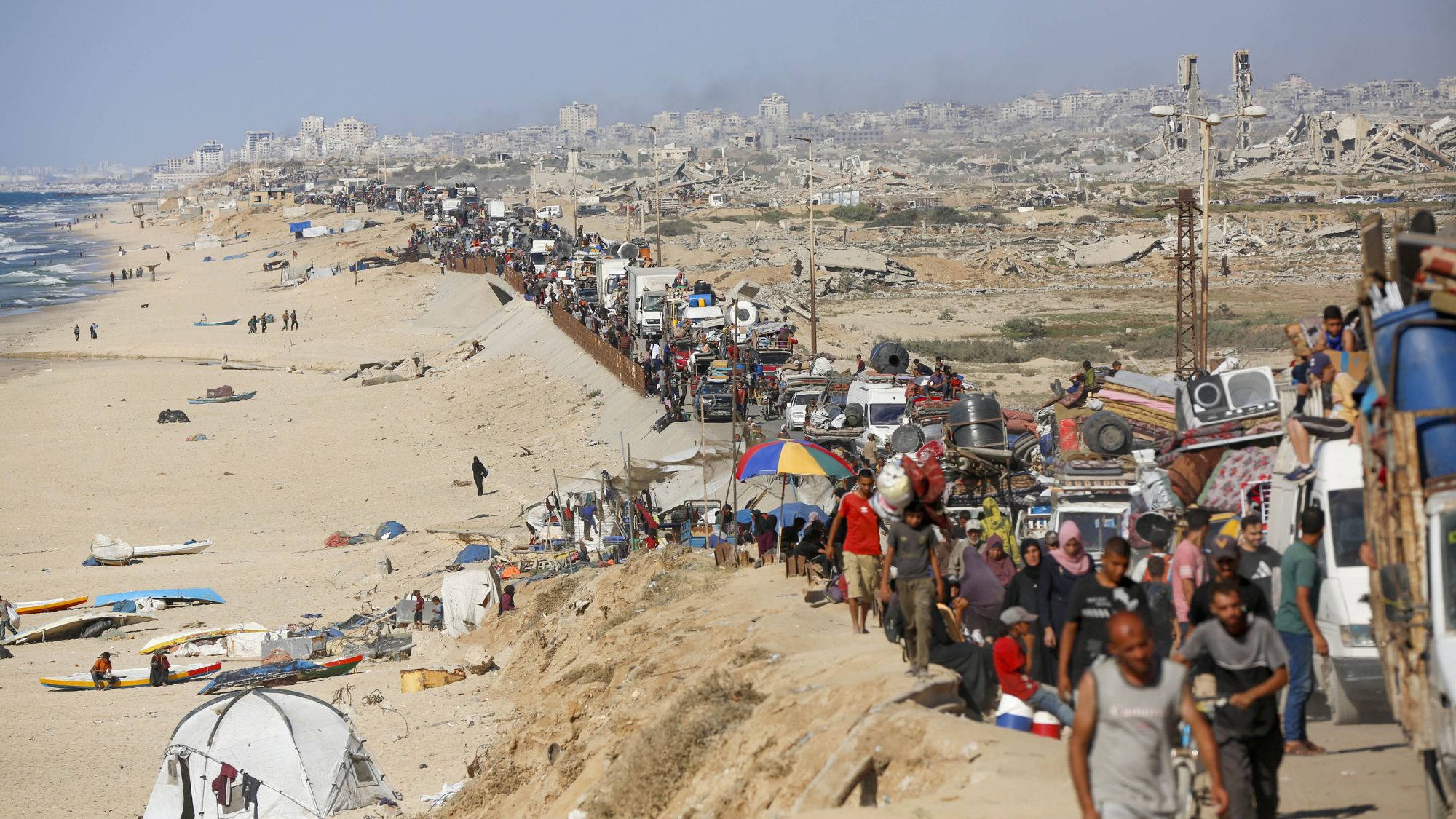UN panel finds Israeli genocide in Gaza
The report found that Israeli leaders had committed ‘four of the five “genocidal acts”’ prohibited under the U.N. Genocide Convention


A free daily email with the biggest news stories of the day – and the best features from TheWeek.com
You are now subscribed
Your newsletter sign-up was successful
What happened
Israel’s assault on Gaza meets the legal definition of genocide, a team of independent experts commissioned by the United Nations Human Rights Council said yesterday. The panel’s 72-page report was released as Israeli forces launched a major ground assault on Gaza City, forcing thousands of Palestinians to flee south.
Who said what
The three-member commission’s “deeply documented” and “painstaking legal analysis” found that Israeli leaders had committed “four of the five ‘genocidal acts’” prohibited under the U.N. Genocide Convention, The Associated Press said. “Genocide accusations are especially sensitive in Israel,” where “memories of the Holocaust” — the Nazi genocide against the Jews that prompted the 1948 convention — “are important in the country’s national identity.”
Israel’s government vehemently rejected the genocide accusation, calling the report “fake” and “libelous.” The panel “does not speak for the U.N.,” The Washington Post said, but its finding “echoes assessments by a growing group of governments and Israeli and international human rights organizations,” including the International Association of Genocide Scholars.
What next?
The international community’s “obligation to prevent genocide wherever it occurs” is “not optional,” commission chair Navi Pillay, a former judge on the Rwanda genocide tribunals, said at The New York Times. It “requires action,” including “halting the transfer of weapons” used in genocidal acts and “using all available diplomatic and legal means to stop the killing.” Pillay’s panel has no power to act, the AP said, but its findings “could be used by prosecutors at the International Criminal Court or the U.N.’s International Court of Justice,” which is currently “hearing a genocide case filed by South Africa against Israel.”
The Week
Escape your echo chamber. Get the facts behind the news, plus analysis from multiple perspectives.

Sign up for The Week's Free Newsletters
From our morning news briefing to a weekly Good News Newsletter, get the best of The Week delivered directly to your inbox.
From our morning news briefing to a weekly Good News Newsletter, get the best of The Week delivered directly to your inbox.
A free daily email with the biggest news stories of the day – and the best features from TheWeek.com
Rafi Schwartz has worked as a politics writer at The Week since 2022, where he covers elections, Congress and the White House. He was previously a contributing writer with Mic focusing largely on politics, a senior writer with Splinter News, a staff writer for Fusion's news lab, and the managing editor of Heeb Magazine, a Jewish life and culture publication. Rafi's work has appeared in Rolling Stone, GOOD and The Forward, among others.
